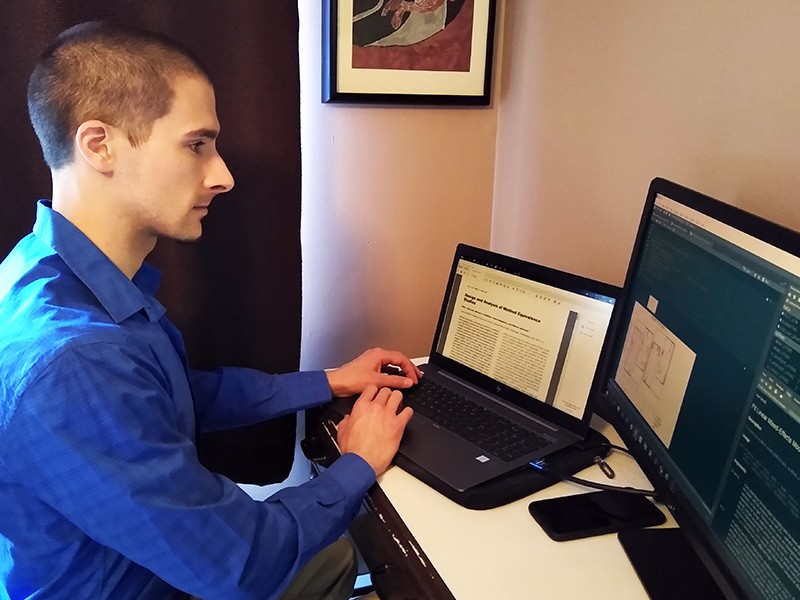MS IN APPLIED STATISTICS AND DATA SCIENCE

Villanova's MS in Applied Statistics and Data Science provides students with the training and skills needed to thrive in a variety of data-driven careers.
Job growth in data science and statistics has been strong over the last decade, with data-driven decision making becoming increasingly crucial for government agencies, industries, and even small businesses.
Why choose Villanova for your degree?
Respected Program
- The MS in Applied Statistics and Data Science is a top-level program with a rich history that dates back 70 years.
- Our graduates are employed across the country and around the globe in a variety of careers in statistics, data science and analytics. We have alumni working in pharmaceuticals, finance, government, education, consulting, engineering, and other industrial areas.
- The program has continually evolved to meet the needs of today's statistics and data science graduates, with new classes being added and developed regularly.
- The program provides a strong foundation for statistical analysis that is crucial for understanding the "why" and "how" of data-based decision making. We go beyond the teaching of black-box methods in order to prepare our graduates for a variety of data-oriented tasks and positions.
Flexible Options
- There are three tracks that students can choose as a focus for their statistical education: Applied Statistics, Biostatistics, and Data Science.
- Students may complete their degree on a full or part-time basis, finishing a degree as quickly as 1.5 years or over several years on a one-course-at-a-time basis.
- Evening courses, generally held once per week on campus, make it possible for students to minimize travel and attend our program while working a job or internship.
- Fourteen different elective courses have been offered in the Applied Statistics and Data Science in the past several years, in addition to several required courses. Students also have the option to take data-related courses offered in the Computer Science and Mathematics graduate programs.
- Our program accepts students from a wide-variety of undergraduate backgrounds besides mathematics or statistics, including computer sciences, economics, chemistry, biology, psychology, foreign languages and more.
Dedicated and Knowledgeable Professors
- Ten dedicated professors teach courses in the program each year. Several of the professors have won University and national awards recognizing their teaching, research and service. Importantly, education is highly valued at Villanova.
- The professors have a variety of expertise, including biostatistics, genetics, data mining and deep learning, nonparametric statistics, Bayesian statistics, experimental design, and statistics education.
- The on-campus format of the program allows students to get to know each other and have direct access to professors.
Ample Student Opportunities
- The Philadelphia area has a number of industries employing statisticians and data scientists, including pharmaceutical, financial/banking and other industries. Philadelphia is also not far from other major employment hubs for statisticians and data scientists, including Washington and New York.
- Area companies regularly reach out with job openings and internship possibilities for our students, often initiated by our program's alumni.
- Our program has a student chapter with the American Statistical Association, a statistics club, and various events for students such as alumni panels, statistics workshops and welcome picnics.
Additional Information
Learn more about the program's curriculum and tracks.
View additional program information, including career outcomes, faculty information and prospective student information.

